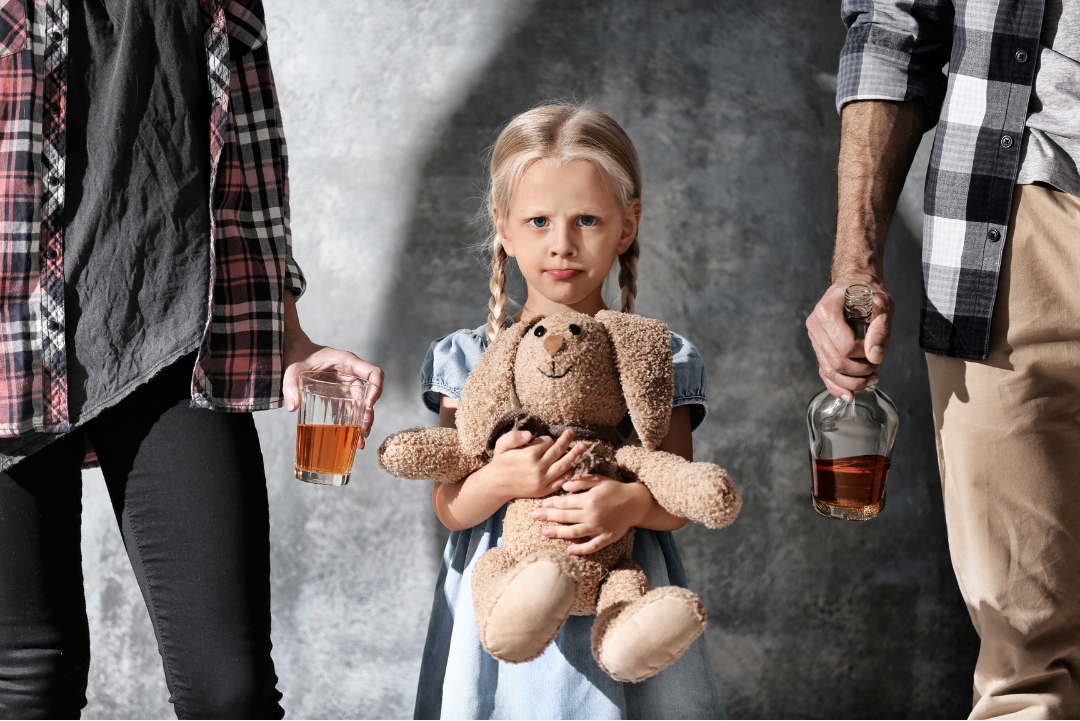What Our Kids Actually Think About Our Drinking: Why it helps to change how we role model alcohol
When it comes to parenting and drinking: The kids are watching. We may think a glass of wine in the afternoon or a rush to get them to bed so we can ‘relax’ is going unnoticed by the kids - but it isn’t. So, how does our drinking impact our kids? And why is it helpful to change how we role model alcohol to young teens?
We need to understand the impact…
Our kids are astute observers, silently absorbing the essence of our behaviours. What may seem like a casual sip to us can carry weighty implications for them. Research, including studies from the National Institute on Alcohol Abuse and Alcoholism, states that parental drinking habits significantly influence a child's perspective on alcohol and their likelihood of engaging in risky behaviours. We also have to remember that a child who starts drinking as a young teen is four times more likely to develop alcohol dependence.
So, here’s what our kids might be thinking…
1. Emotional Interpretation
Children, lacking the nuances of adult understanding, may interpret alcohol consumption through an emotional lens. They may associate it with joy, stress relief, or celebration, shaping their own future coping mechanisms.
2. Perception of Normalcy:
What they witness at home becomes their normal. If a glass of wine is a constant companion to dinner, they may perceive alcohol as an essential component of daily life.
3. Role Modelling:
Children often mimic adult behaviours. They may see our patterns around alcohol and unconsciously adopt similar habits as they grow older.
How To Change the Way We Role Model Alcohol…
Show them ‘coping’ doesn’t come in a bottle.
The way we cope with stress, celebrations, or challenges greatly influences our kids. If alcohol is consistently used as a primary coping mechanism or used as a reward, kids may internalise this association. When we show them a full range of stress management strategies that don’t revolve around drinking, such as breathwork, exercise, communication, and meditation, they understand that coping with life doesn’t require alcohol.
Express yourself without ‘loosening up’ first.
If you tend to rely on alcohol to loosen up, or express your true emotions, your kids will perceive this as the ‘norm’. Try to model healthy emotional expression and communication by openly asking questions, and actively listen to your kids – without any alcohol in hand. Show them they can ‘turn up’ as their full selves and be seen and heard – knowing they don’t need to find confidence or courage in alcohol.
Accept full responsibility for your actions.
Kids pick up on the consequences of your actions. If they witness firsthand the negative effects of alcohol misuse, from impaired judgment to strained relationships, it becomes part of their understanding. Take full ownership of any negative behaviour and accept responsibility. And when it comes to talking to our teens about alcohol, we need to educate them about the risks and dangers associated with drinking. The sad fact is that one 14 – 17-year-old dies every weekend due to alcohol. Teens also report they are more likely to use illicit drugs after drinking alcohol.
Be aware of the impact booze has on relationships.
The dynamics of relationships within a family can be profoundly impacted by the role of alcohol. If it becomes a source of tension or leads to unhealthy behaviours, kids internalise these patterns in their future relationships. Strive to create an environment where relationships are built on trust, open and honest communication, and shared experiences unrelated to alcohol.
Be extra present in joyful moments.
Kids are remarkably perceptive, and they keenly notice when we are truly happy and present with them. When we give them our best, most present self (without alcohol), we are showing them who we truly are, that they matter to us, and that happiness comes from shared experiences and authentic connections.
I know personally that getting sober has made a huge difference to my relationships with my children. When I’m stressed (as we all get stressed!) my daughter (aged 12) will say ‘Oh mum, go have a bath with your special bubbles’. A few years ago she’d have told me to go pour a glass of wine…
If you’d like to read more on role modelling around alcohol with your kids, it’s all in my book! As a special gift to you, if you purchase my book before Christmas, you’ll receive five FREE coaching videos! You can pre-order a copy here.

